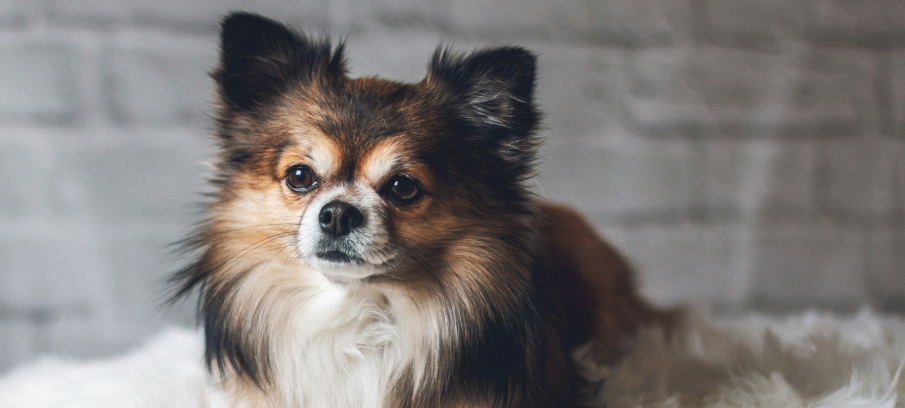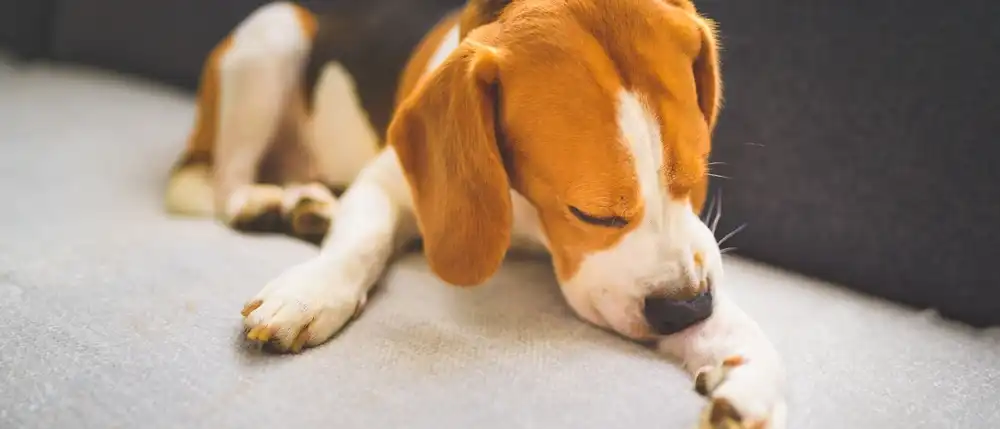The Ultimate Guide to Skin and Coat Care for Your Dog

Introduction
As a dog owner, you know that your furry friend's skin and coat are essential to their overall health and well-being. A healthy coat not only makes your dog look great but also protects them from the elements and potential skin irritations. However, different dog breeds have varying skin and coat care needs, and it's crucial to understand how to keep your pup looking and feeling their best. In this comprehensive guide, we'll explore the best practices and products for maintaining your dog's skin and coat health, no matter their breed.
Understanding Your Dog's Skin and Coat
Before diving into the specifics of skin and coat care, it's essential to understand the basics of your dog's skin and coat. A dog's skin is their largest organ, and it plays a vital role in protecting them from external factors like bacteria, parasites, and the environment. The coat, on the other hand, is made up of hair follicles that grow from the skin and serve as insulation, protection, and a way to regulate body temperature.
Different dog breeds have different types of coats, ranging from short and smooth to long and fluffy. Some breeds, like Poodles and Bichon Frises, have hair that grows continuously and requires regular trimming, while others, like Labrador Retrievers and Beagles, have short, dense coats that shed seasonally. Understanding your dog's specific coat type will help you determine the best grooming routine and products to use.
Brushing and Bathing
Regular brushing and bathing are the foundation of any good skin and coat care routine. Brushing helps remove loose hair, dirt, and debris while distributing natural oils throughout the coat, promoting a healthy shine. The frequency of brushing depends on your dog's coat type and length, but most dogs benefit from brushing at least once a week.
When it comes to bathing, it's important not to overdo it, as too much bathing can strip the coat of its natural oils and lead to dry, itchy skin. Most dogs only need a bath every 4-6 weeks, unless they get particularly dirty or smelly. When bathing your dog, use a gentle, moisturizing shampoo like the Oatmeal Dog Shampoo Bar, which is specially formulated to soothe and nourish the skin while cleansing the coat.
For dogs with long or thick coats, consider using a Detangling Spray to help work through any knots or tangles before brushing. After bathing, use a Deodorizer Spray to keep your dog smelling fresh between baths.
Addressing Skin Issues
Even with regular grooming, some dogs may experience skin issues like dryness, itching, or irritation. If you notice your dog scratching excessively or developing red, flaky patches on their skin, it's important to address the issue promptly to prevent further discomfort and potential infections.
One common cause of skin irritation in dogs is allergies, which can be triggered by environmental factors like pollen, dust, or certain foods. If you suspect your dog has allergies, consult with your veterinarian to identify the trigger and develop a treatment plan, which may include dietary changes, medications, or topical treatments.
For mild skin irritations, using a soothing and moisturizing product like the Skin Soother & Moisturizer can help alleviate discomfort and promote healing. This gentle, all-natural balm is formulated with nourishing ingredients like coconut oil, shea butter, and vitamin E to hydrate and protect the skin.
Dental and Eye Care
In addition to skin and coat care, it's important not to overlook your dog's dental and eye health. Regular dental care, including brushing and using Dental Wipes, can help prevent tooth decay, gum disease, and bad breath. Eye Wipes are also a convenient way to keep your dog's eyes clean and free of discharge or debris.
Paw and Ear Care
Your dog's paws and ears are also important areas to focus on when it comes to overall health and hygiene. Paw Balm is a great product to use after walks or in dry weather conditions to prevent cracking and moisturize the paw pads. For dogs with floppy ears or those prone to ear infections, using Ear Wipes regularly can help keep the ears clean and dry, reducing the risk of infection.
Supplements for Skin and Coat Health
In addition to topical products, there are also several supplements that can support your dog's skin and coat health from the inside out. Omega-3 fatty acids, found in fish oil supplements, have been shown to improve skin and coat condition, reduce inflammation, and support overall health. Biotin, a B-vitamin, is also known to promote healthy skin and coat growth.
When selecting supplements for your dog, always choose high-quality, veterinarian-approved products and follow the recommended dosage instructions. Consult with your veterinarian before starting any new supplement regimen to ensure it's appropriate for your dog's individual needs.
Training and Treats
Training your dog to enjoy grooming and handling can go a long way in making skin and coat care a positive experience for both you and your furry friend. Using high-value treats like the Chicken & Oat Training Treats can help reinforce good behavior and create a positive association with grooming.
Conclusion
Maintaining your dog's skin and coat health is an essential part of being a responsible pet owner. By understanding your dog's specific needs, establishing a regular grooming routine, and using high-quality products like those in the Coat Care Bundle, you can help keep your furry friend looking and feeling their best. Remember to also focus on dental, eye, paw, and ear care, and consider incorporating supplements to support skin and coat health from within. With a little time, patience, and the right tools, you can help your dog maintain a healthy, beautiful coat for years to come.
Technical Research
Proper skin and coat care is essential for maintaining a dog's overall health and well-being. A healthy coat not only makes a dog look good but also serves important functions like protecting the skin from external factors, regulating body temperature, and providing sensory information. Different dog breeds have different types of coats, ranging from short and smooth to long and fluffy, and each type has specific grooming needs².
Regular brushing and bathing are the foundation of any good skin and coat care routine. Brushing helps remove loose hair, dirt, and debris while distributing natural oils throughout the coat, promoting a healthy shine. The frequency of brushing depends on the dog's coat type and length, but most dogs benefit from brushing at least once a week. When bathing a dog, it's important not to overdo it, as too much bathing can strip the coat of its natural oils and lead to dry, itchy skin. Most dogs only need a bath every 4-6 weeks, unless they get particularly dirty or smelly.
Some dogs may experience skin issues like dryness, itching, or irritation, even with regular grooming. Allergies are a common cause of skin irritation in dogs and can be triggered by environmental factors like pollen, dust, or certain foods. If a dog is scratching excessively or developing red, flaky patches on their skin, it's important to consult with a veterinarian to identify the trigger and develop a treatment plan.
In addition to skin and coat care, dental and eye care are also important for maintaining a dog's overall health. Regular dental care, including brushing and using dental wipes, can help prevent tooth decay, gum disease, and bad breath. Eye wipes are a convenient way to keep a dog's eyes clean and free of discharge or debris.
Supplements can also support a dog's skin and coat health from the inside out. Omega-3 fatty acids, found in fish oil supplements, have been shown to improve skin and coat condition, reduce inflammation, and support overall health. Biotin, a B-vitamin, is also known to promote healthy skin and coat growth.
Training a dog to enjoy grooming and handling can make skin and coat care a positive experience for both the owner and the dog. Using high-value treats can help reinforce good behavior and create a positive association with grooming.
Recent Posts
-

OCD in Dogs and Cats: Causes and Genetic Involvement
-

Dog Breeds Predisposed to Noise Phobia
-

Unraveling the Correlation between Canine Genetics and Behavior